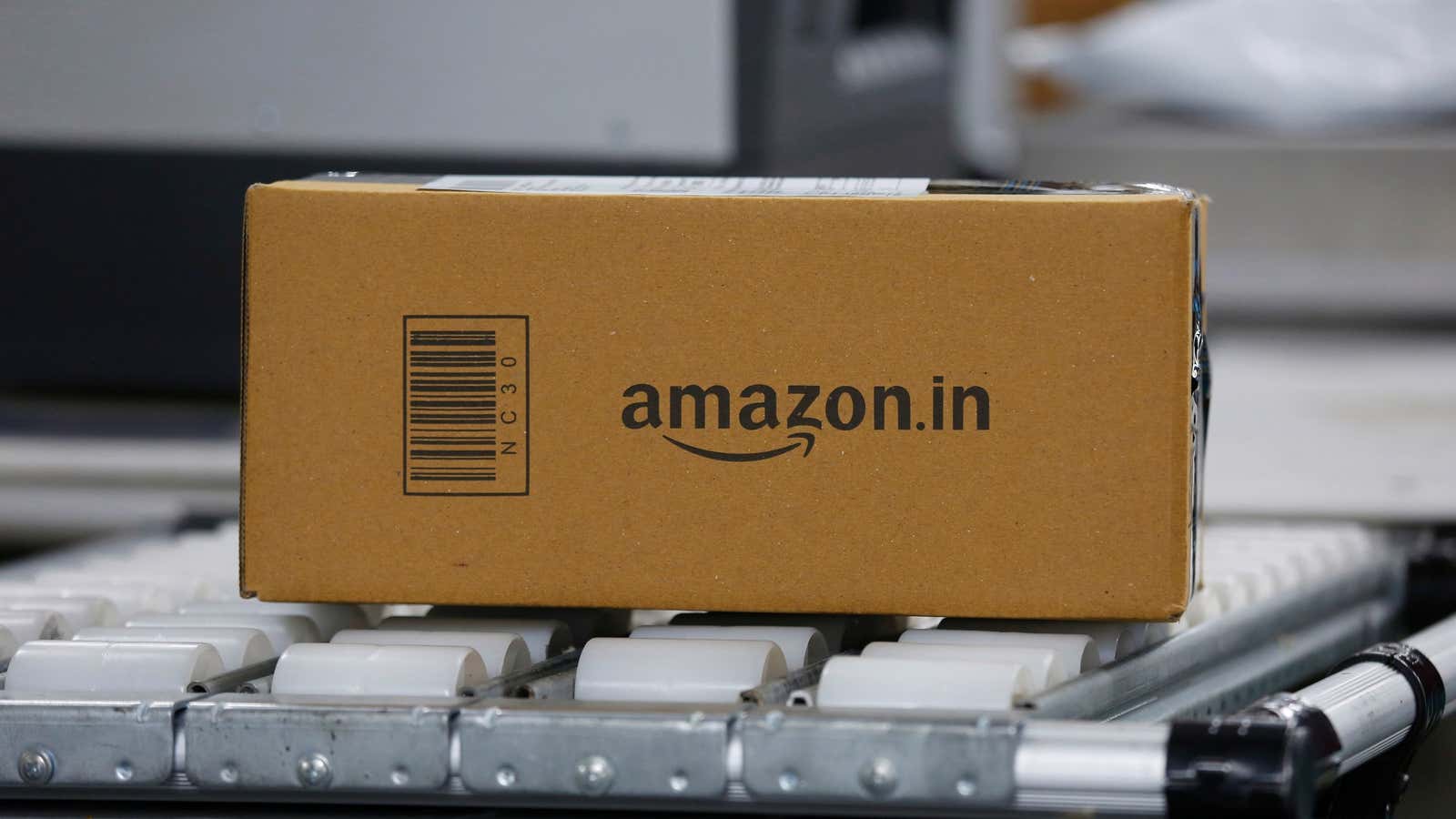Just four days since India’s new foreign direct investment (FDI) policy for e-commerce came into effect, there have been some massive changes in the way online retailers operate in the country.
Among other things, India’s largest e-tailers, Amazon and Flipkart, have reportedly pulled down hundreds of thousands of products from their online stores.
On Feb. 01, the Indian government implemented several restrictive changes (pdf) to India’s FDI policy for e-commerce. The new rules state that online marketplaces can no longer enter into exclusive deals for selling products on their platforms nor can they have a single vendor supply more than a quarter of the inventory. The government also restricted marketplaces from influencing prices in a bid to curb deep discounting.
In this election year, “there’s much uncertainty as to what the impact of the government role changes is going to have on the e-commerce sector there,” Brian Olsavsky, Amazon’s chief financial officer said during the company’s earnings call on Jan. 31. “We remain committed to complying with all laws and regulations really well, but we’re evaluating the situation.” Rival Walmart, which bought homegrown e-commerce firm Flipkart for a whopping $16 billion last year, is equally shaken.
Nasdaq-listed Amazon and NYSE-listed Walmart lost a combined $50 billion (Rs35,000 crore) in market cap when the policy came into force on Friday.
Damage control
The new e-commerce policy could lead to online sales falling by $46 billion by 2022, according to a draft analysis by consultancy PwC. Both Amazon and rival Flipkart have reportedly seen nearly a third of their sales volume disappear since the policy took effect on Friday.
Amazon India has reportedly had to take multiple products off its shelves. The site had to discontinue a number of offerings by AmazonBasics, which is owned by its parent company.
Many of the goods that have been pulled from Amazon were sold by Cloudtail or Appario Retail. The former is a joint venture (JV) between Amazon and Infosys co-founder NR Narayana Murthy’s Catamaran Ventures, while the latter is a JV between Amazon and Ashok Patni Group.
Cloudtail is Amazon’s biggest seller, generating up to 40% of the company’s sales in certain months. It was also a seller for Pantry—the grocery-delivery service that was one of Amazon’s biggest bets in recent years—which was also shut down in the aftermath of the new rules. In September, the online retailer even acquired a massive stake worth Rs4,200 crore ($582 million) in Aditya Birla Group’s grocery chain More with the intention of scaling up this vertical.
Though Amazon feels “very good about the long-term prospects in India,” the online retailing behemoth is concerned about the impact the rule will have on consumers and sellers alike, said Olsavsky. “I don’t think it’s necessarily consistent with better price, better selection and better convenience for the Indian customer,” he added.
